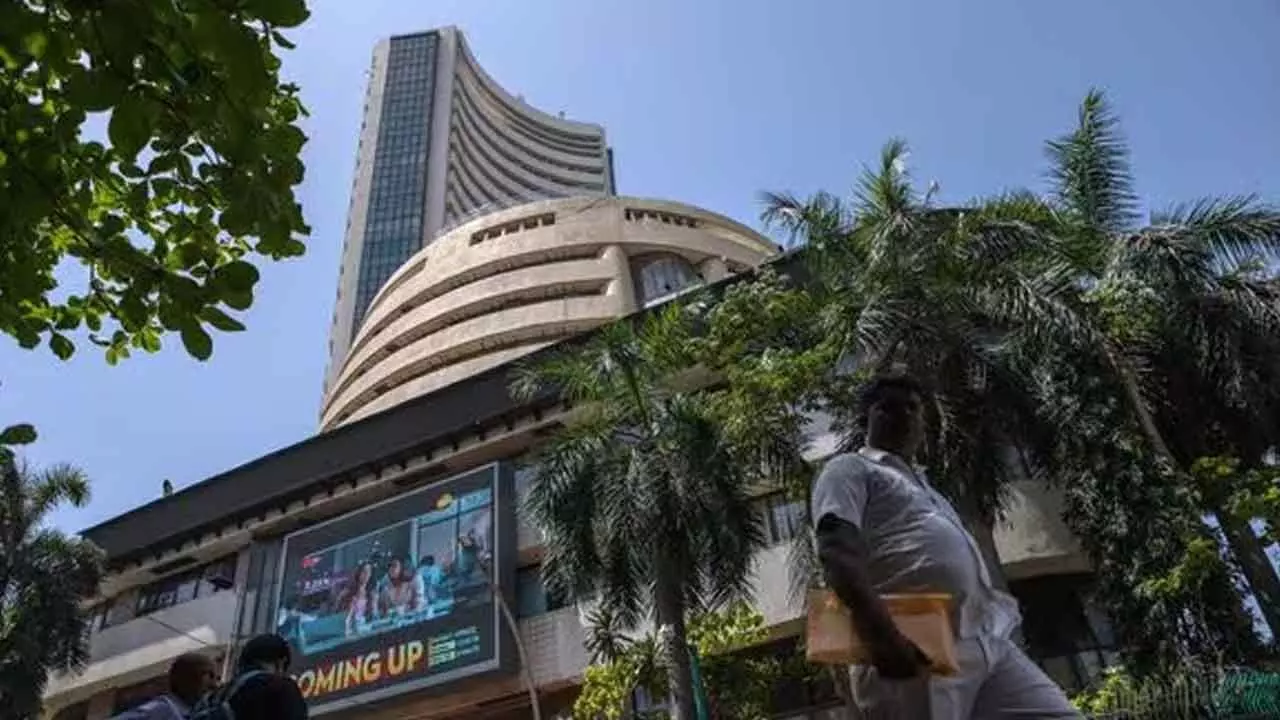Indian Market Braces for Muted Open as Global Cues Weigh In
Indian stock market faces a muted opening on Friday due to mixed global cues. Escalating Israel-Iran tensions, steady China interest rates, and volatile crude oil prices are key factors influencing Sensex and Nifty 50 today.
Indian Market Braces for Muted Open as Global Cues Weigh In

The Indian stock market is poised for a subdued start to trading on Friday, as a mix of global factors creates a cautious atmosphere. Both the Sensex and Nifty 50 are expected to open flat, navigating through a landscape influenced by geopolitical tensions, varying performances in Asian markets, and key economic decisions from China and Japan.
On Thursday, the domestic benchmarks experienced minor declines, with the Nifty 50 dipping just below the 24,800 mark. The Sensex shed 82.79 points (0.10%) to close at 81,361.87, while the Nifty 50 ended 18.80 points (0.08%) lower at 24,793.25.
Ajit Mishra, SVP, Research, Religare Broking Ltd., highlighted the underlying sentiment. "The strength in the benchmark index does not reflect the underlying market tone, as we are witnessing gradual profit booking across sectors and in the broader market," he noted. Mishra cautioned that escalating geopolitical tensions, pushing crude prices higher, could lead to further deterioration if oil sustains above the $80 mark. He reiterated a cautious view, advising investors to monitor positions closely for clarity.
Here's a closer look at the key global cues influencing the Indian market today:
1. Asia's Mixed Bag:
Asian markets presented a mixed picture on Friday. Japan's Nikkei 225 edged up 0.13%, while the Topix remained flat. South Korea's Kospi gained 0.51%, and the Kosdaq followed suit with a 0.41% rise. However, Hong Kong's Hang Seng index futures suggested a weaker opening, indicating varied investor sentiment across the region amidst China's economic data and ongoing Middle East concerns.
2. Gift Nifty's Muted Signal:
Gift Nifty, an early indicator for the Indian market, was trading around the 24,793 level. This reflected a discount of nearly 10 points from the Nifty futures' previous close, signaling a quiet start for the Indian equity indices.
3. Wall Street's Holiday Pause and Futures Dip:
The US stock market remained closed on Thursday in observance of the Juneteenth holiday. However, US stock futures experienced a slight dip in overnight trading, ahead of Friday's session. Dow Jones Industrial Average futures fell 0.3%, Nasdaq 100 futures declined 0.2%, and S&P 500 futures also saw a 0.2% drop, suggesting cautiousness among investors.
4. Escalating Israel-Iran Conflict:
The Middle East conflict continues to be a significant overhang. The White House announced that US President Donald Trump is set to decide within the next two weeks whether the US will get involved in the escalating air war between Israel and Iran. This comes as the conflict intensified, with Israel reportedly bombing Iranian nuclear sites and Iran launching missile and drone strikes on Israel, including a recent overnight attack on an Israeli hospital. The uncertainty surrounding US involvement adds a layer of apprehension to global markets.
5. China's Steady Hand on Interest Rates:
China's central bank, the People's Bank of China (PBOC), opted to keep its benchmark interest rates unchanged on Friday. The 1-year loan prime rate (LPR) was held at 3.0%, and the 5-year LPR remained at 3.5%. This decision follows a rate cut last month, the first since October, indicating a cautious approach to monetary policy amidst economic conditions.
6. Japan's Accelerating Inflation:
Japan's core inflation rate accelerated to 3.7% in May, up from a 3.5% year-on-year rise recorded in April. This data, which excludes volatile fresh food prices, indicates persistent inflationary pressures in the Japanese economy.
7. Crude Oil's Volatile Ascent:
Crude oil prices saw a slight dip overnight but are still on track for their third consecutive weekly gain, primarily driven by the ongoing Israel-Iran conflict. Brent crude futures fell 1.89% to $77.36 a barrel, yet remained up 3.9% for the week. The US West Texas Intermediate (WTI) crude for July rose 1.14% to $76.00, with the more liquid August contract gaining 0.7% to $74. The geopolitical tensions continue to keep energy markets on edge.
8. Gold's Safe-Haven Appeal Holds:
Gold prices remained steady, reflecting its role as a safe-haven asset amidst the escalating geopolitical tensions in the Middle East. Investors are closely watching for any potential US involvement in the conflict. Spot gold price held flat at $3,367.60 an ounce, although bullion has seen a 1.9% decline so far this week. US gold futures also remained stable at $3,384.20.
In summary, while Asian markets showed some resilience, the looming geopolitical uncertainty surrounding the Israel-Iran conflict and its potential impact on crude oil prices, coupled with a cautious outlook from Gift Nifty, sets the stage for a subdued opening in the Indian equity market. Investors will be keenly observing global developments for clearer direction.

